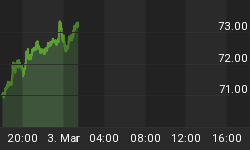"World economic freedom has reached record levels. But after seven years of straight decline, the U.S. has dropped out of the top 10 most economically free countries."
- Wall Street Journal, January 13, 2014
"Planned Economy or Planned Destruction" - Chicago Tribune, 1934
Key lines in the cartoon are:
"Depleting The Resources Of The Soundest Government In The World"
"Young Pinkies From Columbia And Harvard"
What appears to be Trotsky is outlining a radical agenda.
Since the early 1970s, the bitter academic Saul Alinsky has inspired legions of the politically ambitious. Including many in today's White House.
The opening paragraph of his Rules For Radicals says it all:
"What follows is for those who want to change the world from what it is to what they believe it should be. The Prince was written by Machiavelli for the Haves on how to hold power. Rules for Radicals is written for the Have-Nots on how to take it away."
- Rules for Radicals: A Pragmatic Primer for Realistic Radicals
Considering that political disaster has been the inevitable consequence of every great experiment in authoritarian government, what are today's American authoritarians really winning?
Power, but not yet unlimited.
The full article follows:
Wall Street Journal, January 13, 2014
America's Dwindling Economic FreedomRegulation, taxes and debt knock the U.S. out of the world's top 10.
By Terry Miller
Jan. 13, 2014 8:05 p.m. ETWorld economic freedom has reached record levels, according to the 2014 Index of Economic Freedom, released Tuesday by the Heritage Foundation and The Wall Street Journal. But after seven straight years of decline, the U.S. has dropped out of the top 10 most economically free countries.
For 20 years, the index has measured a nation's commitment to free enterprise on a scale of 0 to 100 by evaluating 10 categories, including fiscal soundness, government size and property rights. These commitments have powerful effects: Countries achieving higher levels of economic freedom consistently and measurably outperform others in economic growth, long-term prosperity and social progress. Botswana, for example, has made gains through low tax rates and political stability.
Getty ImagesThose losing freedom, on the other hand, risk economic stagnation, high unemployment and deteriorating social conditions. For instance, heavy-handed government intervention in Brazil's economy continues to limit mobility and fuel a sense of injustice.
It's not hard to see why the U.S. is losing ground. Even marginal tax rates exceeding 43% cannot finance runaway government spending, which has caused the national debt to skyrocket. The Obama administration continues to shackle entire sectors of the economy with regulation, including health care, finance and energy. The intervention impedes both personal freedom and national prosperity.
But as the U.S. economy languishes, many countries are leaping ahead, thanks to policies that enhance economic freedom--the same ones that made the U.S. economy the most powerful in the world. Governments in 114 countries have taken steps in the past year to increase the economic freedom of their citizens. Forty-three countries, from every part of the world, have now reached their highest economic freedom ranking in the index's history.
Hong Kong continues to dominate the list, followed by Singapore, Australia, Switzerland, New Zealand and Canada. These are the only countries to earn the index's "economically free" designation. Mauritius earned top honors among African countries and Chile excelled in Latin
America. Despite the turmoil in the Middle East, several Gulf states, led by Bahrain, earned designation as "mostly free."
A realignment is under way in Europe, according to the index's findings. Eighteen European nations, including Germany, Sweden, Georgia and Poland, have reached new highs in economic freedom. By contrast, five others--Greece, Italy, France, Cyprus and the United Kingdom--registered scores lower than they received when the index started two decades ago.
The most improved players are in Eastern Europe, including Estonia, Lithuania and the Czech Republic. These countries have gained the most economic freedom over the past two decades. And it's no surprise: Those who have lived under communism have no trouble recognizing the benefits of a free-market system. But countries that have experimented with milder forms of socialism, such as Sweden, Denmark and Canada, also have made impressive moves toward greater economic freedom, with gains near 10 points or higher on the index scale. Sweden, for instance, is now ranked 20th out of 178 countries, up from 34th out of 140 countries in 1996.
The U.S. and the U.K, historically champions of free enterprise, have suffered the most pronounced declines. Both countries now fall in the "mostly free" category. Some of the worst performers are in Latin America, particularly Venezuela, Argentina, Ecuador and Bolivia. All are governed by cronypopulist regimes pushing policies that have made property rights less secure, spending unsustainable and inflation evermore threatening.
Despite financial crises and recessions, the global economy has expanded by nearly 70% in 20 years, to $54 trillion in 2012 from $32 trillion in 1993. Hundreds of millions of people have left grinding poverty behind as their economies have become freer. But it is an appalling, avoidable human tragedy how many of the world's peoples remain unfree--and poor.
The record of increasing economic freedom elsewhere makes it inexcusable that a country like the U.S. continues to pursue policies antithetical to its own growth, while wielding its influence to encourage other countries to chart the same disastrous course. The 2014 Index of Economic Freedom documents a world-wide race to enhance economic opportunity through greater freedom--and this year's index demonstrates that the U.S. needs a drastic change in direction.


















